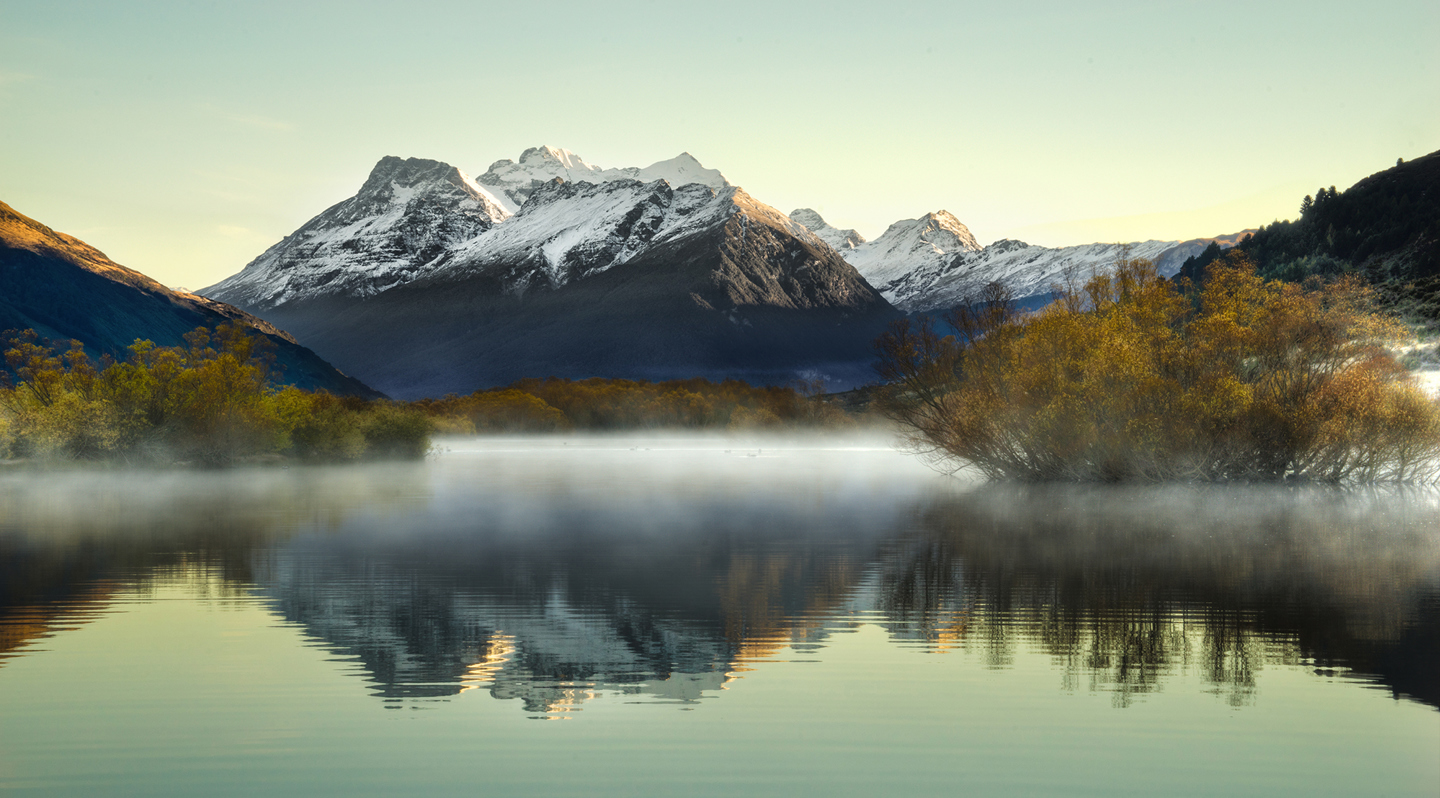
Glenorchy winter morning (Flickr: Rick Schwartz)
Do you take your preparedness on holiday with you? This story describes how a family on a weekend away from home were impacted when a large earthquake occurred on the Alpine Fault, in the South Island of New Zealand.
It is impossible to predict exactly when and where an earthquake will occur, or what the outcomes will be, but the intent of this story is to promote preparedness in any eventuality. It’s great to be prepared at home for an earthquake, but it’s also possible that an earthquake will happen when we least expect it.
Hopefully this story encourages readers to think how they can be more resilient to an earthquake whenever and wherever it happens.
We can’t predict earthquakes, but we can prepare for them.
As she gazed up at the mountains, Christine felt the stress of the working week melt away. She exhaled a plume of fog as the winter morning sun began to warm her chilly skin, trying to stay present in the moment, blocking out all thoughts of returning to the city in a couple of days. Even the patchy cell service, if a little inconvenient, helped with the sense of getting away from it all. They had a busy day of relaxation ahead.

Glenorchy winter morning (Flickr: Rick Schwartz)
When Mike had suggested they bring the kids to Glenorchy for the weekend, she’d wondered if it was more trouble than it was worth. The flight from Wellington to Queenstown, collecting the hire car, driving out in to the wilderness… But as they’d wound their way down the edge of Lake Wakatipu last night, along with quite a few other weekend escapees, she’d been compelled to give her husband credit. She was feeling her batteries recharging by the second.
“These guys want to have a go at the Mt Judah track this morning, whilst you’re ‘otherwise engaged’” he said to her now, with a hint of a tease as he appraised her comfy leisure wear and the yoga mat nestled against her feet – which were in jandals despite the frosty temperature. “We should be back by early afternoon”. The boys had already hustled off to the car before she’d had chance to fuss over whether they’d taken enough snacks, or packed their sun cream, or band aids for their blisters. Mike had it all under control. She hoped.
This was their chance for some long overdue father-son time. Although they both worked, her husbands hours had, almost imperceptibly, been stretching out bit by bit until he now rarely made it home before they were in bed. This little weekend adventure would let them reconnect. And if it allowed her some free time to indulge in a morning of yoga, so much the better.
Starting to feel the cold, Christine drew her hoodie around herself a little more tightly, gave her husband a kiss goodbye and headed in to the inviting warmth of the Eco Camp hall.
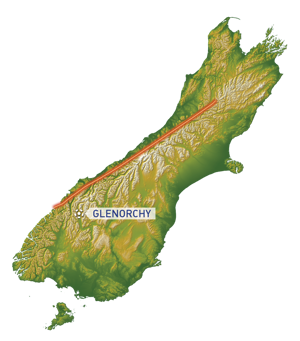
Glenorchy is ~50km South-East of the Alpine Fault
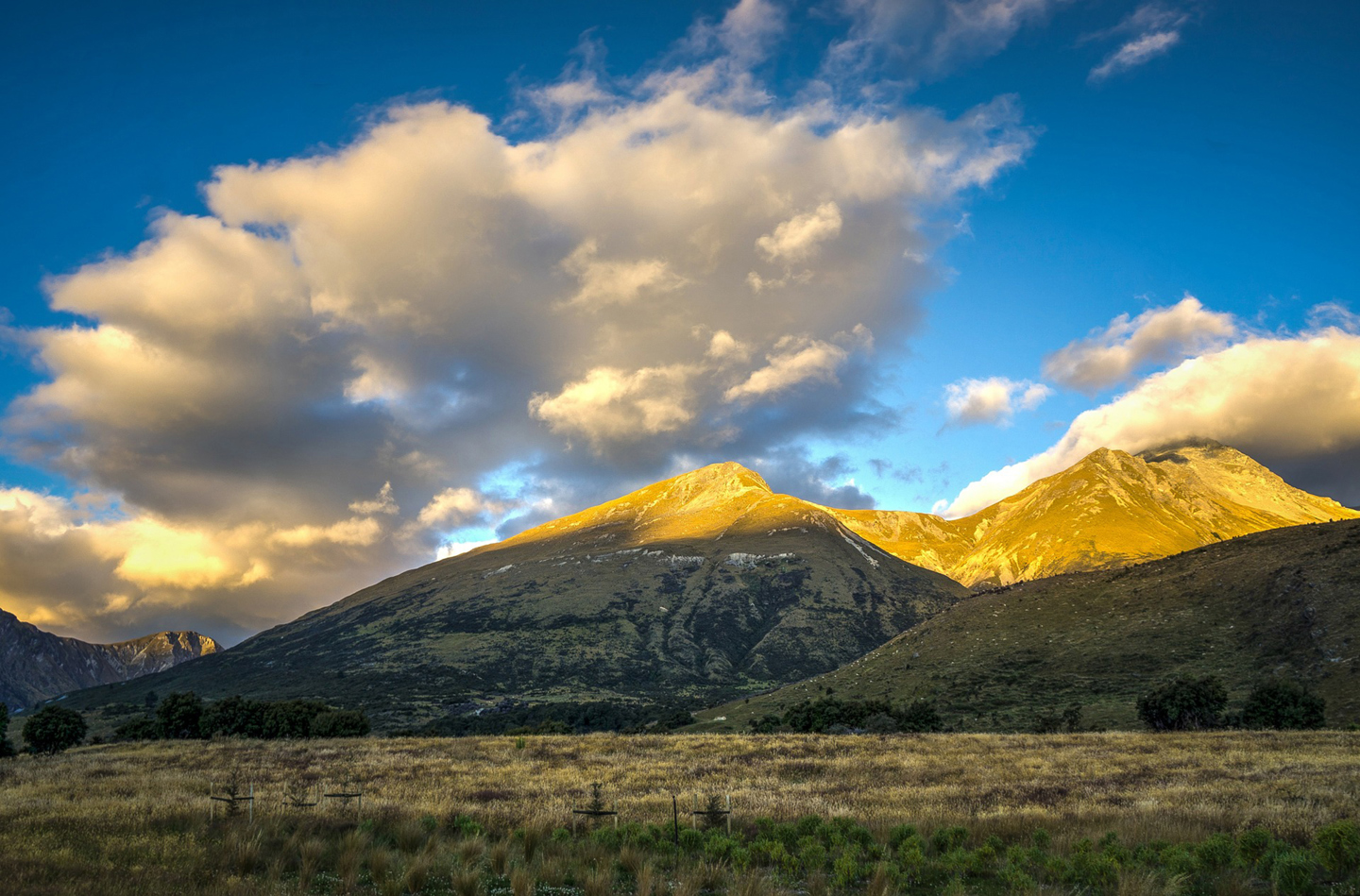
Mt Judah, Glenorchy (Pixabay: Michelle Maria)
By 10am Mike was feeling quite pleased with himself. He’ successfully managed to mobilise his 12 year old sons, located the correct trail-head, and was even pretty much managing to keep pace with the exuberant youths. Letting them pack and carry their own bags had been a stroke of genius, and it was nice to see them taking some time away from their devices: the lack of reliable WiFi had been shocking to the children at first, but now they seemed to be enjoying their time away from the city.
He’d hoped to be one of the boys this weekend, but he was mostly just getting glimpses of the back of their heads and backpacks as they bobbed along the trail well out in from of him. His exertions had overcome the crispness of the morning, and he reached up to mop his brow as his sons bounded up the next flight of steps and around the corner, out of sight.
The rumbling took them all by surprise. It was almost as if an articulated truck was driving past their central Wellington home. But they weren’t at home, they were taking a weekend away in the countryside. And it wasn’t a truck: the ground itself was shaking beneath their feet. The rippling and swaying made it impossible to stand.
‘Drop, cover, hold’. They all knew what they were supposed to do, but the frightening and uncertain circumstances made it difficult to overcome their instinctive ‘fight or flight’ response. Stay still or run towards a clearing? Move to the doorway or crouch under the table? When would the shaking stop??
All they could do was wait until everything became still again.
Finally it stopped.
Christine peeked out from underneath the banquet table. Immediately around her were the soggy, crumbled remains of the breakfast that the table had held minutes before. Glancing further around the room she saw her fellow yogis – shaken, but apparently unharmed thanks to the rapidly delivered instructions of their yoga teacher. As she rushed to the other side of the room to retrieve her phone, she became painfully aware that it wasn’t only croissants and coffee on the floor, but all of the smashed dishware that they’d been served on. Her flimsy jandals would provide little relief from the rubble and even to reach them she had to pick her way gingerly, yet urgently, across the large conference hall.
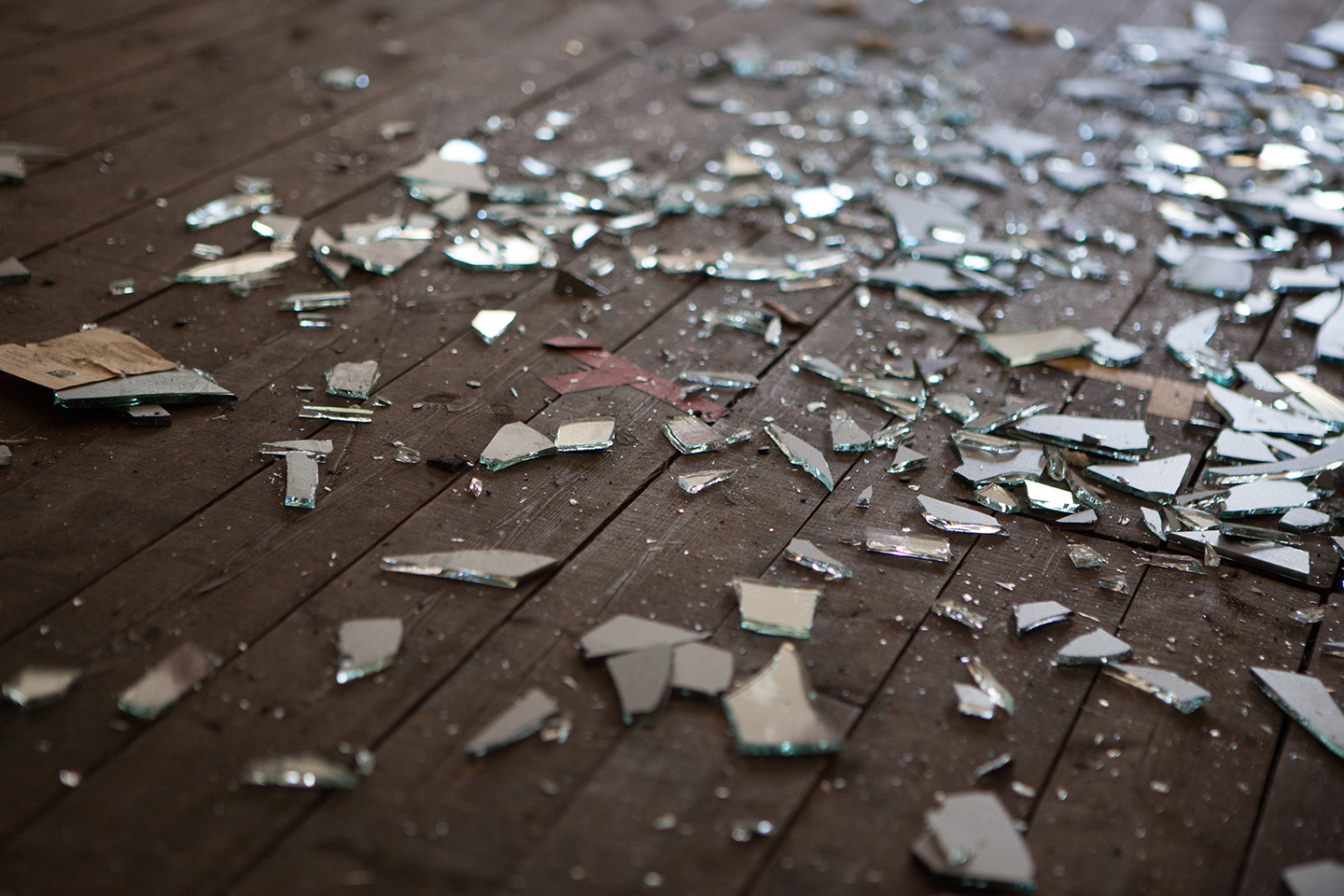
Keep solid footwear handy: broken glass and dishware can cause injury following an earthquake
It was then that she looked out of the window and realised how lucky they’d been. Many of the surrounding buildings appeared to have been significantly damaged, and people were starting to emerge nursing cuts, grazes and other injuries. She noticed a couple supporting each other and with a renewed sense of panic she reached down for her phone. No missed calls.
Attempting to reach Mike, all Christine was getting was what she presumed was a ‘network busy’ tone. Or perhaps it was the patchy cell service they’d been suffering from. She thought of all the people who would be similarly desperate to hear from their family, including those in that same room, and wondered how many of their partners and children were out in the wilderness when the earthquake had hit.
She could only hope that they had managed to find shelter – that they hadn’t been struck by falling rocks or trees, or any number of other hazards. Her immediate instinct was to go to them, but she didn’t even have a car, or any proper clothes.
A member of staff must have registered the sense of realisation on Christine’s face; that the initial shock was wearing off, and the reality of the unknown whereabouts of the rest of her family was sinking in. “The best thing to do right now is to send a text. The networks will be inundated by calls. Sit yourself down here a moment and take some water, get your bearings.” Christine nodded. This wasn’t anything she didn’t know, really. She quietly sipped her drink, trying to quell the sense of helplessness.

Following an earthquake: Use social media or text messages instead of calling to keep phone lines clear for emergency calls
She’d thought that she was as prepared as possible. Living in Wellington, minor earthquakes happened so often that it was almost possible to become complacent. Still, she and almost everyone she knew had their earthquake kits ready with all the essentials – first aid, torch, water, radio, purification tablets, the list went on. Despite Mike’s incredulity they even had a second pantry, stocked with non-perishable goods that she’d thought they could rely on in the event of a big one.
But now all of that was a plane journey away, and she was here all alone.
“Boys??? Boys!!!” Mike raced around the bend where he’d seen his children disappearing when the shaking had begun. He’d tried to reach them, but had been shaken from his feet. He’d been totally helpless for those two minutes, while who knew what was happening around that bend.
As they came in to sight, the sense of relief was overwhelming. “Dad!! We hid underneath that cliff thing!” they reported, with an obvious sense of pride that they’d taken in all of the drills at school. But when Mike looked around, he saw how things could have turned out much differently. A landslide was blocking the track just a little way ahead and he had no idea whether the track back down was passable.
He patted down his pockets and realised that his phone must have fallen out during the shaking. Looking at his hands, he noticed them tremble; whether from shock or the cold that had begun to penetrate his clothing, he wasn’t sure.
The boys had gone awfully quiet as well. He kicked himself for not taking this walk more seriously. He didn’t even have anything to wipe the dirt from his son’s faces, never mind an emergency blanket, which would have come in very handy right now. Even more worryingly, he noticed that they were virtually out of water.
The only thing to do was to start making their way down. Hopefully they could at least make it back to the shelter of the car.
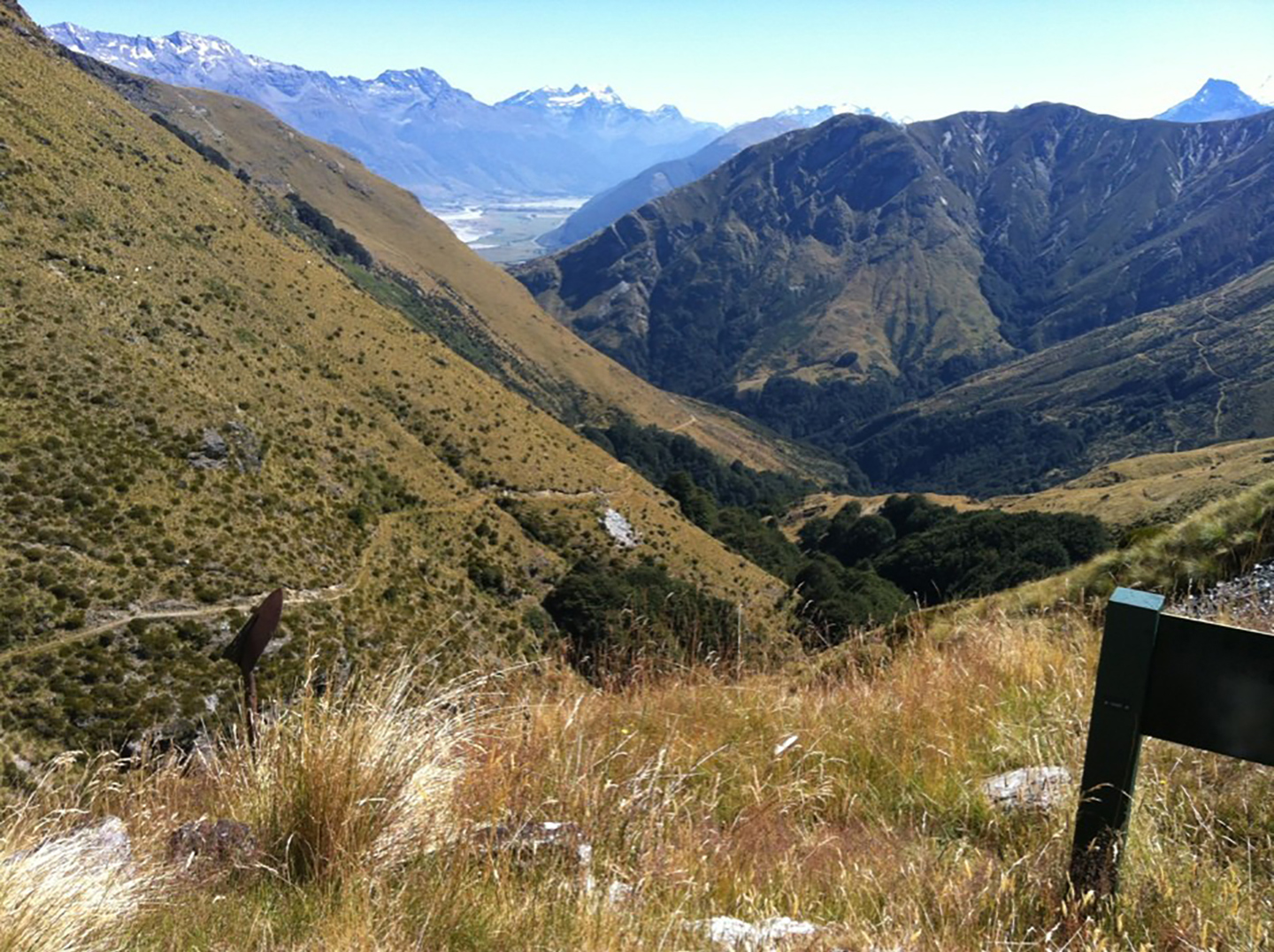
The descent from Mt Judah.
Christine began to help the other volunteers tidy up the hall. Luckily for them, the Eco Camp had been constructed to some of the worlds most rigorous building performance standards, so the building proved more resilient to the shaking than many others in the area. It would be able to serve as a place of refuge for any displaced residents.
Sporadic news had been coming in via the radio that someone had thoughtfully positioned at the front of the room; the road from Glenorchy to Queenstown had been totally blocked by a landslide. They would be very unlikely to make it home in time for school on Monday.
If the rest of her family made it back from their tramp, that was. She’d still not heard anything. Her text to Mike remained unopened.
Gradually more and more locals filtered in to the hall. Many of them were shivering with cold: they’d fled their houses as soon as the shaking stopped, and it was unsafe for them to return. They’d escaped with only the clothes on their backs. She saw her own fears reflected in the faces of many, and attempted to provide some comfort by distributing blankets and bottles of water.
Some of the staff had even started bringing out urns of tea, which had surprised Christine initially, until someone had explained that the Camp was off grid. The roof was covered in solar panels which, thanks to the robustness of the building, had remained intact and were continuing to produce power.
At least they provided some semblance of normality.
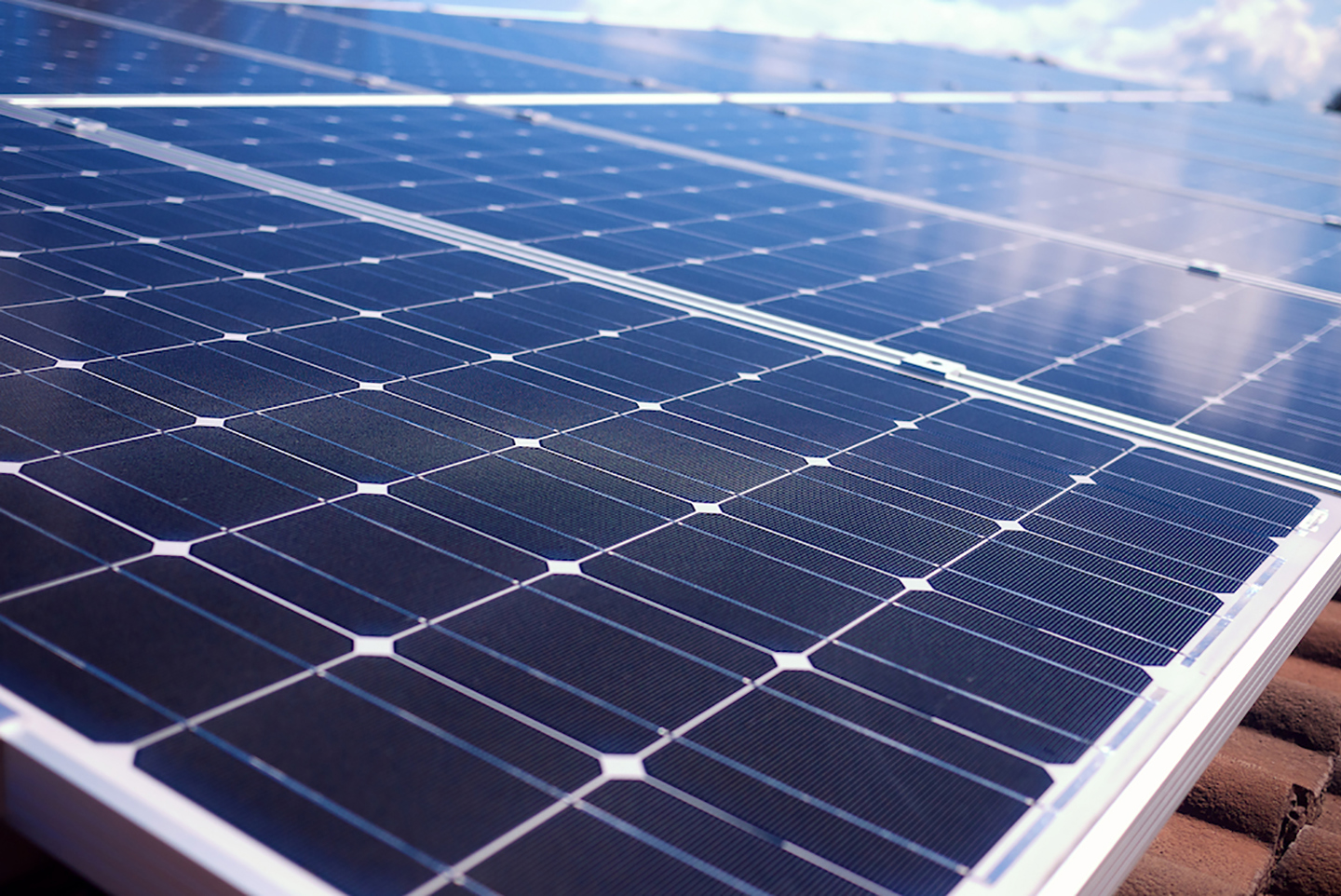
(Flickr: Michael Mazengarb)
As the latest influx of people subsided, Christine was left alone with her thoughts once again. There had been no updates, she had no idea what steps would be taken to retrieve stranded trampers in these circumstances. Where would the emergency services even begin?! There might be hundreds of people out and about in the area. At least she knew the general direction her family had headed, and they’d said they would be back by early afternoon, so they couldn’t have gone too far. All she could do at that point in time was sit and wait for news.
As Mike and the boys began their descent, the contrast in mood between their excited climb not 15 minutes before, and the sombre, careful footsteps they now trod, was shocking. The worry that Mike felt for his wife back at Camp, and any other family members who might have been affected across the country, was forced to the back of his mind as he tended to the immediate needs of his two sons.
Although the children were trying to keep a brave face – typical of young men about to enter their teens – naturally, they were unprepared for the occurrence of aftershocks. As the first one arrived with a short but intense jolt, the facade that they’d been trying to maintain started to crumble. Clinging to each other, his twins began to cry. “Dad!! We’re not going to make it. Our feet hurt so much and I think I twisted my ankle. I’m so cold”.
Mike quelled his own fears, keenly feeling his responsibility for his sons and knowing he would do anything necessary to get them back to their mother safely. Kneeling in front of them, he reassured “Aftershocks are common after the main event, there will be less shaking than the big earthquake, you’ll see. We’ll all make it back to camp.
With a renewed sense of adventure, they marched on. His idea to distract them by looking out for unusual stony debris amongst the small landslides that obscured their path successfully played on the typical interest that young boys have in weird things, and before they knew it they were approaching the car.
Then they saw what had happened.
The old, rotten-looking poplar they had parked beside had given way to the shaking and crushed their car. It would be impossible to drive. Disappointed and deflated at the extension of their walk, they took a seat on the stump of that tree whilst they planned their next move.
“Dad! We nearly forgot! All of our road trip supplies, they’re still in the boot!”
His son was right – and not just about the lollies and treats that they’d stored back there to stop the kids eating them all at once. They’d also left one of their suitcases in there, being too lazy to unpack anything but the essentials the night before. Plus, there was a first aid kit. Maybe they had enough supplies to see them through the extra 45 minute walk back to Camp.
Sitting beside the crushed up car, they momentarily forgot their worries as they tucked in to the unexpected bounty. Mike wiped and bandaged all of their cuts, scrapes and blisters, and set them another challenge: to make it back to their mum before lunch time. Rejuvenated by their snacks and the hydration from their spare water bottle, they set off to find their mum.
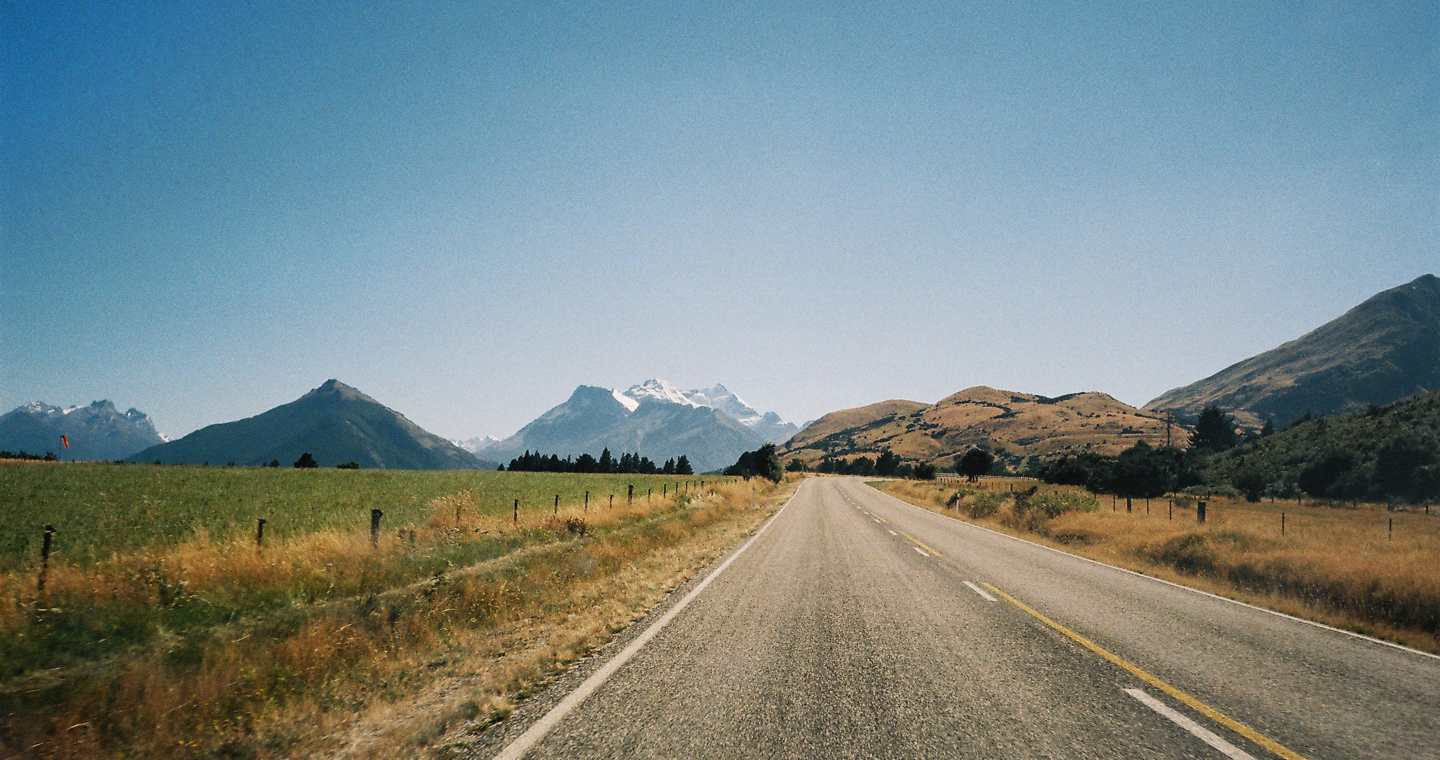
The road to Glenorchy (Flickr: Miguel Palhinha)
Christine sat outside the Camp hall, watching locals come and go. Despite her own concerns about her family, she considered the larger scale impacts of the earthquake on this community and likely many others around the South Island. She saw the benefits of the off grid Eco Camp accommodation. Not all communities would benefit from the respite of a set of structurally resilient buildings, with a local electricity supply unaffected by the countless landslides that had stricken the surrounding area. Even the composting toilets that the facility offered were now something to be grateful for, as who knew what the impacts might have been to sewage infrastructure.
As she huddled herself up to continue her vigil, staring down the dirt road that appeared to be relatively unaffected by the ground shaking, she first saw her two sons round the corner. Inseparable as ever, they were clearly competing over who was going to make it to her first – despite the clear looks of shock and exhaustion on their faces and bruises on their shins.
In the coming hours, they would concern themselves with the well-being of their friends and relatives across the country, the potential state of their house in Wellington, and when and how they would be able to return there in the coming days. They would come to realise the importance of preparing for an earthquake, and the generosity with which communities come together in times of adversity.
For now, the reunited family greeted each other with the enthusiasm of those who had feared they might never be together again.
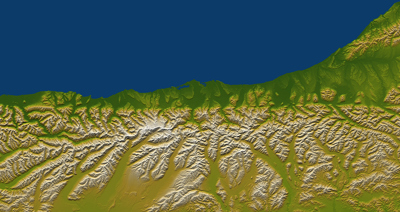
We are seeking expressions of interest for the newly vacant Science Lead position. The AF8 Programme is seeking a suitably qualified scientist with active Alpine Fault hazard and risk-related research, and strong networks and connections across the science and emergency management sectors.
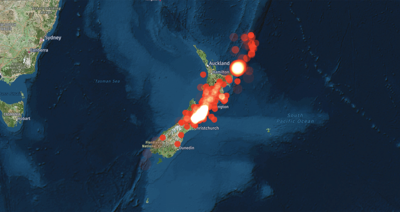
The short answer is (spoiler alert) no. Research shows that while there are periods of heightened activity, the overall occurrence rates are stable. But let’s take a look at why it might seem like earthquakes are on the rise...
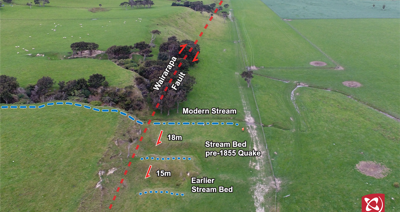
Our Earth is a constantly changing and evolving beast shaped over millions of years by tectonic forces – like earthquakes and volcanoes – and weather. Like our bodies, the events of its long life leave scars and wrinkles, fractures, and wounds at every scale from the mighty mountain ranges to microscopic mineral structures. All of this is evidence to a keen geological eye...